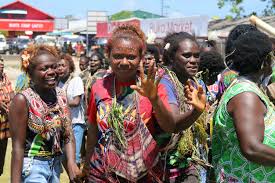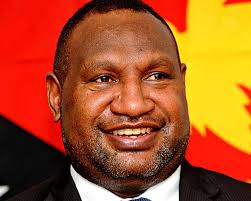by Tusi Tala, Staff Writer
Women’s leadership in Papua New Guinea (PNG) is frequently characterized as tough and challenging due to a variety of political, economic, social, and cultural factors.
For instance, the 2020 report from the PNG National Research Institute Gender Program indicated that women political candidates encounter gender-specific obstacles, including stereotypes that undermine their capabilities, resulting in limited support during campaigns.
As a result, since independence in 1975, the percentage of women candidates in elections has consistently remained below 5%, with no more than three women elected among the 118 parliamentarians.
International development organizations have played a significant role in promoting women’s leadership in PNG, offering both financial and technical assistance. Initiatives include the United Nations Development Programme’s mock parliaments for women candidates and the Australian Department of Foreign Affairs and Trade’s capacity-building support in collaboration with the PNG Integrity of Political Parties and Candidates Commission.
However, aid can also have detrimental effects. According to Sally Engle Merry, universal frameworks often overlook the unique cultural contexts. Moreover, the late Teresia Teaiwa urged a reevaluation of the Pacific’s position in global discussions, particularly concerning knowledge practices and the Western framing of foreign aid that marginalizes “indigenous ways of knowing and being.”
Indigenous practices, such as local women’s networks for mutual support, are frequently unrecognized by international aid agencies. This raises the question of how these agencies can better collaborate with women’s organizations to enhance women’s leadership in PNG.
A 15-month ethnographic study from November 2021 to February 2023 revealed that women’s groups organize through a community-based approach known as wok bung wantaim, which translates to working together.
A leader from Lae town noted that for the past 20 years, she has collaborated with women’s networks to assist other women. Typically, women leaders take many years, often 10 to 20, to build enduring relationships.
These relationships lead to various initiatives, such as establishing craft markets, driven by a desire to support one another. A leader at a craft market expressed joy in seeing women come together for activities.
Wok bung wantaim emphasizes partnership and mutual respect among women, founded on the principle of givim bel—giving without expecting anything in return. This concept encompasses acts of kindness, such as providing transport money or shelter for survivors of gender-based violence, illustrating a reciprocal support system among women.
For example, if an aid agency asks a woman leader to mobilize participants for a workshop, she reaches out to her network, embodying the spirit of wok bung wantaim.
The values of wok bung wantaim and givim bel focus on strengthening community ties rather than financial gain. These principles are vital in the relationships between local women and aid agencies, as they reflect a commitment to helping one another.
In the peri-urban Markham Bridge community of Morobe province, despite lacking ties to provincial women’s associations or aid agencies, five women’s associations were registered with the Investment Promotion Authority (IPA) in 2022, totaling 120 members.
Women leaders collaborated with community leaders to open bank accounts with Mama Bank for their associations and individual members, some of whom were banking for the first time. This achievement was made possible through the principles of wok bung wantaim and givim bel.
On December 10, 2022, the Huon Gulf District Office supported the launch of these associations, recognizing their potential to serve as a model for other women in the district.
Through wok bung wantaim and givim bel, these women’s groups have built trust and stronger relationships with the district office, enhancing confidence in women’s leadership within the community.
Unfortunately, the extensive efforts of women leaders to cultivate networks often go unrecognized by aid agencies, which fail to appreciate the time and relational investments involved (West and Aini).
A participant at a Civil Society Organization forum on gender equality in Lae in December 2021 emphasized the need for acknowledgment of these contributions.
This highlights the dedication, commitment, and care that women invest in fostering long-term relationships, even when resources are scarce.
In many cases, aid agencies operate within a power dynamic that resembles patron-client relationships, only engaging women leaders when they need something, like organizing a workshop. This transactional approach fosters no enduring relationships, as it neglects the social values inherent in wok bung wantaim and givim bel.
Re-colonization in any form is not a viable solution. It’s crucial to incorporate local knowledge and engage local communities from the outset of any aid program to create meaningful impact.
Local women leaders serve as catalysts for social change and must be actively involved in aid efforts from the beginning, ensuring their voices are heard.
By doing so, both aid agencies and local groups can tackle broader issues such as gender inequality and the legacy of colonialism, fostering a deeper understanding of women’s leadership that transcends mere tokenism.



